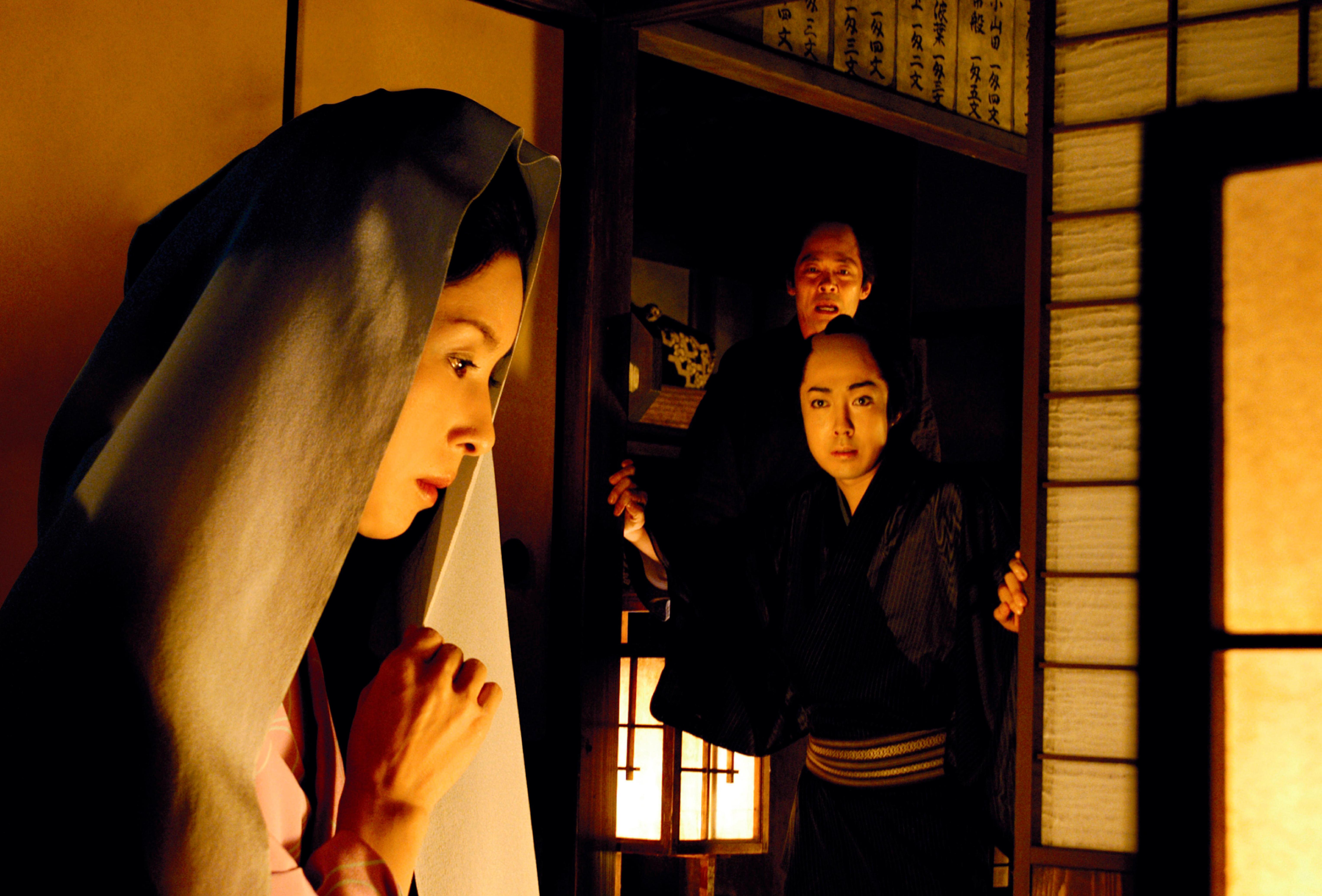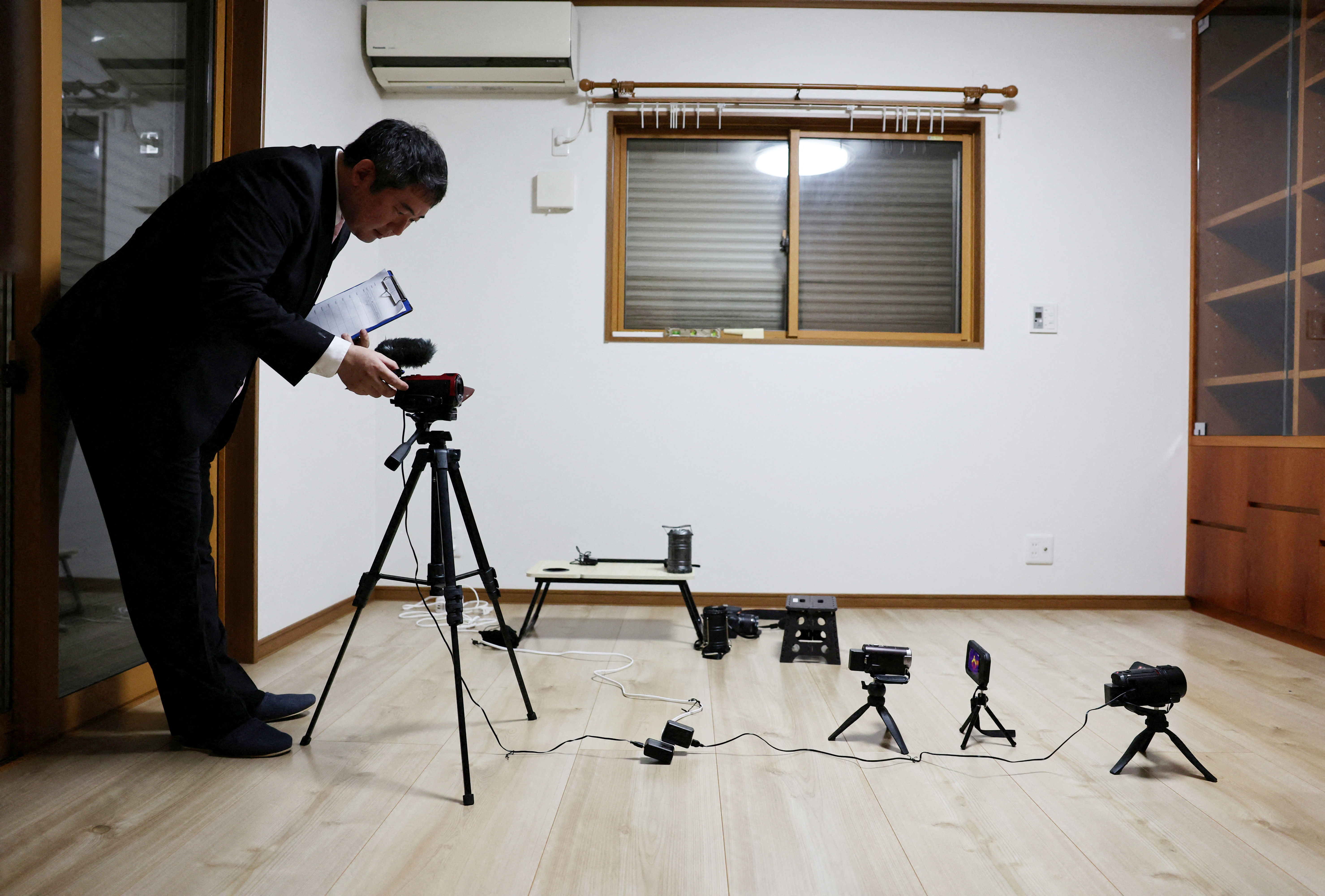In Japan the season for ghost stories is August. While in the West the spirits of the dead are believed to return to this world in late October, in Japan ghosts prefer the warmer months. Next week families will gather to honour the spirits of their ancestors with the festival of Obon.
Perhaps this is why the maker of the horror classic Ring, Hideo Nakata, chose now to release a film that plugs into a phenomenon that in Japan is all too real: a belief in haunted houses.
The property market has a chronic problem with jiko bukken, literally “accident properties” where people have died alone, been murdered or taken their own lives. Many buyers, believing restless spirits linger in such homes, steer clear of them.
Nakata brings us Stigmatised Properties: Possession, the sequel to a 2020 film. It tells the story of Yahiro Kuwata, a steel factory worker played by Shota Watanabe with dreams of online stardom who takes up a shady talent agency’s offer: to feature in a show about living in homes with dark pasts.

Hideo Nakata’s films draw on the belief in haunted houses
ALAMY
In Japan — where the housing crisis means that in some areas there is a chronic shortage of homes, while in others they go uninhabited for long periods — this is not a metaphysical problem. Jiko bukken are uninhabited for years, adding to the list of millions of vacant homes.
After 15 years in the real estate business, Kazutoshi Kodama is a ghostbuster of sorts. Founded three years ago, his company Kachimode offers ghost investigation services to tenants and buyers. He stays overnight in properties, taking recordings with video and thermal cameras, an electromagnetic field meter and other tools.
When he is satisfied that a property is free of ghosts, he issues a certificate to that effect. He pledges to pay one million yen (£5,090) if tenants can prove a ghostly presence after his work is done.

Kazutoshi Kodama investigates properties for ghosts
KIM KYUNG-HOON/REUTERS
“Jiko bukken may be a kind of understanding peculiar to the Japanese,” says Kodama. “The fact that someone died in the property cannot be denied, causing a psychological feeling of disgust. The purpose of my work is to arrest the decline in rent caused by this feeling and recover property values.”
In one example, he was hired to investigate a Tokyo apartment where a young woman killed herself. The landlord was shocked and depressed by the tragedy, and the room was vacant for years.
Finally, the landlord hired Kodama, who stayed there for three nights and pronounced it ghost-free and fit for habitation. A new tenant moved in despite learning of its jiko bukken status and agreeing to pay 95 per cent of the average rent for the size and location.
There are two types of jiko bukken. One involves suicides, murders and fatal fires. The other involves those who die alone, their remains often undiscovered for long periods of time, requiring special cleaning of the property, according to Kodama. Under land ministry regulations, estate agents must disclose such circumstances to prospective residents.

A Buddhist monk performs a ceremony for lost souls
KIM KYUNG-HOON/REUTERS
According to police data, there were 20,320 suicides in Japan in the 2024 financial year, of whom 70 per cent died at home, and 58,044 people aged 65 and older died alone. Kodama estimates that of the latter, 20,000 to 23,000 bodies were found in states of decay, meaning 35,000 to 40,000 residences become jiko bukken each year.
• Cleaning up after ‘kodokushi’, a lonely death, is becoming a growth industry in Japan
Securing tenants for jiko bukken properties used to be difficult and landlords would have to offer big discounts on rent in addition to bearing the clean-up and refurbishment costs. However, inflation in recent years has increased property prices after decades of decline, making jiko bukken an attractive option for those looking for a bargain.
The less superstitious can avail themselves of large, centrally located homes that would normally be beyond their reach. For others, there is Kodama’s ghostbusting guarantee.
“Although people died in these residences, jiko bukken properties are cleaned and refurbished and remain usable,” he says. “I’d like to add value to them by satisfying landlords and tenants. With rising real estate prices, the number of those who can still afford to buy a home is limited. So there’s a role for jiko bukken to play.”


AloJapan.com